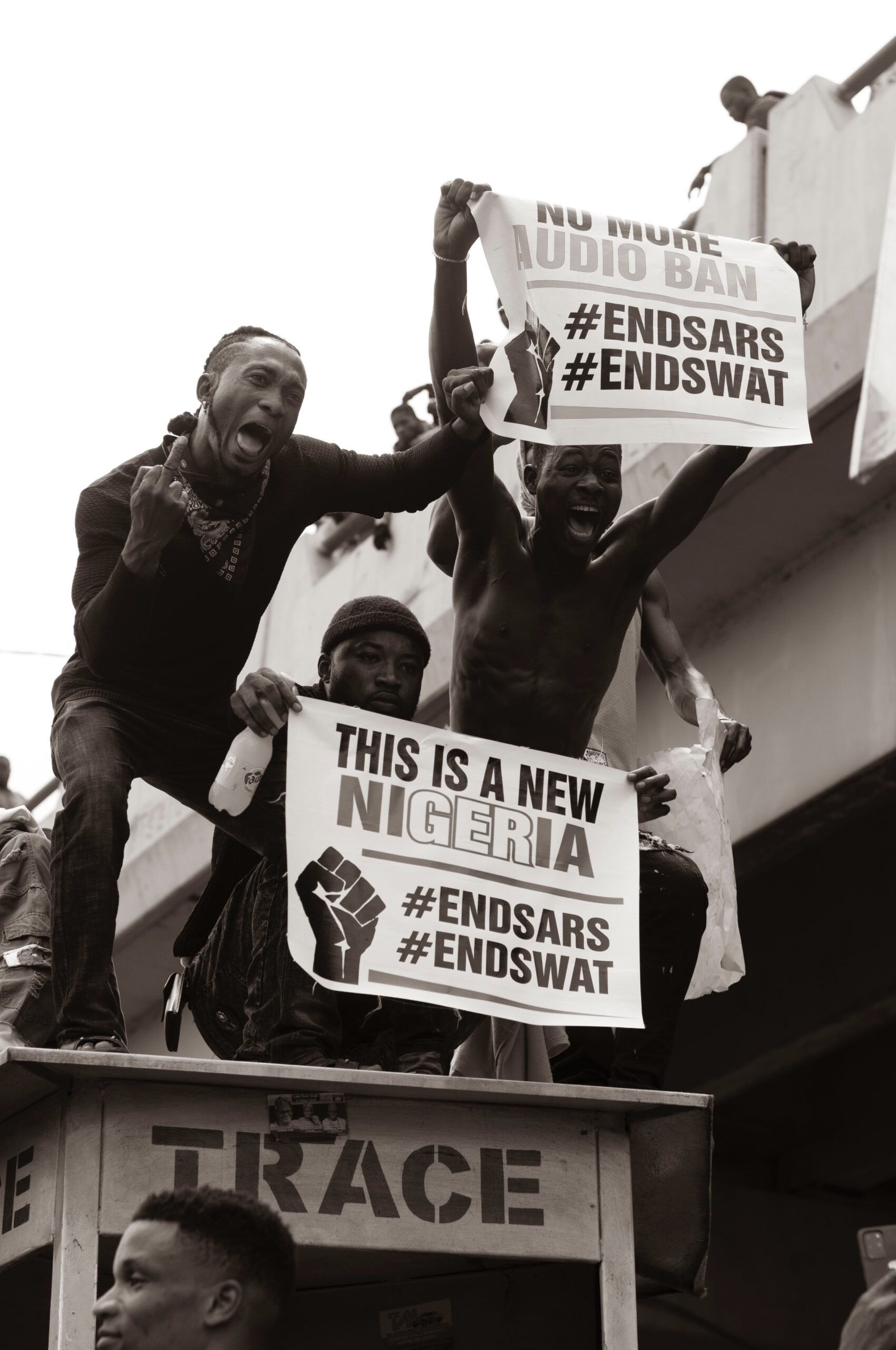High risk protests in Sweden
The International Risk Podcast is tracking a variety of risks internationally, including the risks of civil unrest and protest around the world. The risks internationally from civil unrest, demonstrations, protests, and riots remains significant across the world. In Sweden, the leader of a far-right Danish party is organising protests, which have resulted in violent civil unrest in recent months in response to burning of the Koran, the Islamic Holy Book. Gatherings in support of the far-right movement are likely to be met with counter protests and there is a high risk of violent action in several Swedish cities. After significant damage in April and May in Sweden in response to earlier civil unrest, police will attempt to mitigate the risks by having a larger police presence.
Significant risks of civil unrest across Africa
In Nigeria, protests are occurring across the country in support of teachers going on strike that started on 09 May, and is expected to continue until August. Teacher-led civil unrest is linked to various grievances, including alleged non-payment of salaries, corruption, and difficult working conditions. Student demonstrations about the strike and disruption to their education has involved roadblocks and clashes with the police in the Nigerian capital Abuja and capital of Ondo State, Akure. In neighbouring Guinea, the risk of violence related to anti-government protests remains high. Tensions are increasing over the timetable for a political transition in Guinea, as well as concern about ongoing corruption investigations. The Guinean National Transition Council adopted a 36-month timetable for the transition to civilian rule. The proposed timetable has been rejected by opposition groups, including the former ruling Rally of the Guinean People party. In nearby Liberia, a controversial ruling by the Liberian Electoral Commission, has resulted in the indefinite suspension of a planned senatorial by-election in Lofa county. There is a high very of demonstrations in response to the election postponement in Lofa county as well as the Liberian capital Monrovia. There is likely to be a significant police presence and the risk of escalation remains high.

The Presidential Election that is scheduled to take occur on 15 May continues to be at risk of not occurring due to continued fighting between the Somali President and Prime Minister. The important election, during which parliamentary members will vote to decide the President’s successor, is likely to increase risks of violent attack and civil unrest in Somalia. A curfew will be in place in the capital Mogadishu from 2100hrs (local time) on 14 May until 0600hr on 16 May. There is a high risk that the Islamist group, al-Shabab, will conduct attacks on polling day.
The risk of protest in Asia
The risks internationally from demonstrations and civil unrest are equally high in Asia as well. In Thailand, there are protests and civil unrest related to anti-government demonstrations. Mid-May is the 12th anniversary of the 2010 “Red Shirt” protests in Thailand, the killing of an anti-government activist, as well as the anniversary of the 1992 military coup. The risks of disruption to transport, domestic and international business is high. There is also a high risk that government security services will be on standby to forcibly disperse demonstrators and people in the area of civil unrest.
In Laos, there is a high risk of nationwide disruptions and protests in the coming months due to an ongoing fuel shortage, which has led to long queues outside fuel stations and rationing. The risk of fuel shortages is occurring throughout Laos, including the capital Vientiane. There is a high risk that the fuel shortage, which has been ongoing since November 2021, will lead to further disruptions in the transportation and telecommunications sectors having a wider implication on risks for businesses operating in Laos and neighbouring countries. Public dissatisfaction with the Government’s response to fuel shortages may lead to protests, especially outside government offices. A heightened police presence can be expected wherever civil unrest occurs, and bring a risk of traffic and business disruptions.
The ongoing risk of violence in Karachi was again highlighted on 12 May when at least one person was killed and thirteen others were injured in an explosion attack, which was the second explosion attack in two weeks. Nearby vehicles and buildings also sustained damage. No group has yet claimed responsibility for the attack. There is an increased security force presence in Karachi and authorities attempt to mitigate the persistent risk of further violent attacks. There is a continued risk of travel and business disruptions in Karachi. The incident highlights the persistent risk posed by militancy in Karachi.

In London on 17 May there are expected protests and disruption near the UK Home Office as protestors gather to again demand the release of Wikileaks Founder, Julian Assange from UK prison. The risk of violence is low, but the risk of traffic disruptions in the area are higher, as are disruptions to businesses in the immediate vicinity of the Home Office building. On 18 May, there are also protests expected outside the London Office of the High Commission of India, demanding the release of the Kashmiri separatist leader Yasin Malik, who is imprisoned in India.
The international risks from protests and civil unrest have an immediate impact on civic activities, business operations, and a longer term impact on confidence in government, as well as consumer behaviour. Business leaders and government officials should have robust risk monitoring frameworks in place to ensure they are monitoring existing risks carefully, and able to identify emerging risks early. Listen to The International Risk Podcast to remain up to date with the latest trends in international risk management.